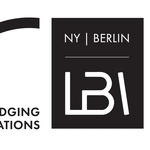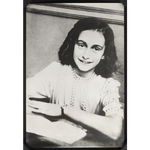Jewish Life in Late Antiquity
From Colonia Agrippina to Augusta Raurica

- Date/Time
- –
- Format
- Online
This program will be held in English on February 16 at 2:00pm Eastern Time. The German version of this program will be held on February 19 at 12:00 Central European Time.
Thanks to the order of a Roman Emperor from 321 CE that allowed the municipal council of the Roman colony at the site of modern-day Cologne to compel Jews to service, we know that Jews were part of late Roman society in the northern European provinces at least 17 centuries ago. A tiny ring of similar age bearing a menorah was unearthed in the Roman town of Augusta Raurica in modern-day Switzerland bears further testament to the presence of Jews in the late Roman Empire in Europe.
But what was life like in these outposts of the Empire? How did Jews relate to their pagan and Christian neighbors, and how do we know? As Leo Baeck Institute explores this history in the Shared History Project, we are pleased to convene three experts on late antiquity for a discussion of the archeological and historical evidence surrounding Jewish life in ancient Rome, the social and political structure of late Roman Society, and the role the Jews played in particular.
About the Panelists
Dr. Thomas Otten is the founding director of MiQua – LVR-Jewish Museum in the Archeological Quarter of Cologne. After studying pre- and early history, classical archaeology and ancient history, he managed the Rhenish Association for Monument and Landscape Conservation before heading the department of conservation and preservation at the public monument agency in the Ministry of Construction of North Rhine-Westphalia from 2006 to 2016. Between 2010 and 2015 he curated archaeology exhibitions on behalf of the federal state. He lectures at the Institute of Archaeology of Cologne University.
Prof. Werner Eck was Professor of Ancient History in the University of Cologne from 1979 to 2007. He earned a PhD in Ancient History from the University of Erlangen-Nürnberg. He is a leading expert on the history of the Roman Empire, and he was awarded the Max Planck Prize for International Research for “for pioneering insights in the history of the Roman Empire.” He was a member of the Institute for Avanced Study in Princeton from 1983–84, and at the Sackler-Institute for Advanced Study at the University of Tel Aviv from 1999–2000. He is Dr. h. c. of the Hebrew University in Jerusalem and one of the co-editors of the Corpus Inscriptionum Iudaeae/Palaestinae, a multi-lingual corpus of the inscriptions from Alexander to Muhammad in Israel.
Prof. René Bloch is Professor of Jewish Studies at the University of Bern (Switzerland), where he holds a joint appointment in the Institute of Jewish Studies and the Institute of Classics. He obtained his Ph.D. (Dr. phil.) as well as his “habilitation” from the University of Basel. Bloch’s recent publications include: “Der jüdische Ring von Kaiseraugst” (in Jüdischer Kulturraum Aargau, J. Picard, A. Bhend, ed., 2020). “Jew or Judean: The Latin Evidence” (in Torah, Temple, Land, M. Witte et al., ed., 2021). “Moses: Motherless with Two Mothers” (in Missing Mothers: Maternal Absence in Antiquity, S. Hübner, D. M. Ratzan, ed., 2021).



